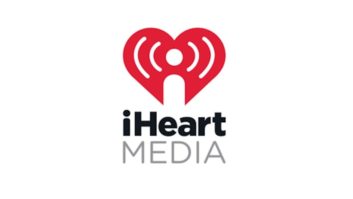With a bevy of broadcaster second quarter earnings releases, including Townsquare Media, Beasley Media Group and Cumulus, broadcast industry analysts have been watching for indications of a downturn in the U.S. economy that would hurt advertising revenue.
It was iHeartMedia’s turn last last week, and the multi-platform broadcaster said it is prepared to “weather any downturn in the economy” if it plays out.
The tone of the company’s C-suite executives was generally upbeat, as usual, but CEO Bob Pittman did use terms such as “uncertain economic times” and “turbulent times” to indicate that the broadcaster is keenly aware of the impact a possible recession would have on ad markets. And the company has more than $5 billion in debt.
Digital was a notable component of iHeartMedia’s second quarter earnings report as the company continues its recovery from the pandemic, but the larger broadcast division also saw growth in revenue.
Overall revenue for the second quarter ending June 30 was up year over year 10.7% for a total of $954 million, according to the filing.
Growth was partly fueled by nearly $253 million in Digital Audio Group revenue, up 27.6% compared to a year ago. The podcasting sector was the big gainer on the digital side, jumping 60% YoY to $86 million in reported revenue for Q2.
iHeartMedia’s broadcast division, which includes 850 radio stations and several radio networks, earned the vast majority of the company revenue in the second quarter, with $663.3 million. That number was up about 4.5% compared to the same period in 2021, according to the filing with the U.S. Securities and Exchange Commission.
The Audio and Media Services Group, which includes Katz Media Group and RCS, continued its upward trajectory by reporting $71 million in revenue in the quarter, a 16.2% jump YoY.
iHeart posted a net operating income of about $15 million in the quarter after reporting an operating loss a year earlier.
CEO Bob Pittman said during an earning call with analysts that the firm is a “leaner and more cost efficient company” thanks to modernization efforts, which have helped drive margin improvements.
Pittman says the radio division “continues to demonstrate that even in uncertain times, it’s a growth engine for the company in revenue and earnings, as well as powering creation of new platforms.”
The company is the largest podcasting publisher in the United States as measured by PodTrak, and its ability as audio content creators coupled with the ability to promote and build audiences for its podcasts by using its broadcast radio assets “give us a huge edge,” Pittman said.
He continues to tout the company’s capacity to leverage its multiple platforms. “All of this is powered by our sales strategy of any seller anywhere can sell anything. A unique iHeart capability that is enabled by the unparalleled ad-tech we have built and acquired and utilized by the largest sales force in audio.”
In a preview, iHeart President/COO Rich Bressler said iHeartMedia’s third quarter revenue is generally trending up 3% to 7%, and he thinks strong political advertising will help boost fourth quarter revenue levels.
iHeartMedia said half-year capital expenditures were $72.2 million compared to $51.1 million in the first six months a year ago. “Capital expenditures during the six months ended June 30, 2022, increased primarily due to our real estate consolidation initiatives aimed at reducing our structural cost base,” according to the release.
Bressler went further during Thursday’s earnings call to say iHeartMedia’s cap-ex for the year is expected to be in the “$150 to $165 million range.”
The broadcaster’s balance sheet reflected $237 million in earnings and free cash flow of $126 million at the end of the second quarter, which included $20 million of net proceeds from real estate sales. iHeartMedia listed $5.62 billion in total debt and $5.33 billion of net debt as of June 30.












